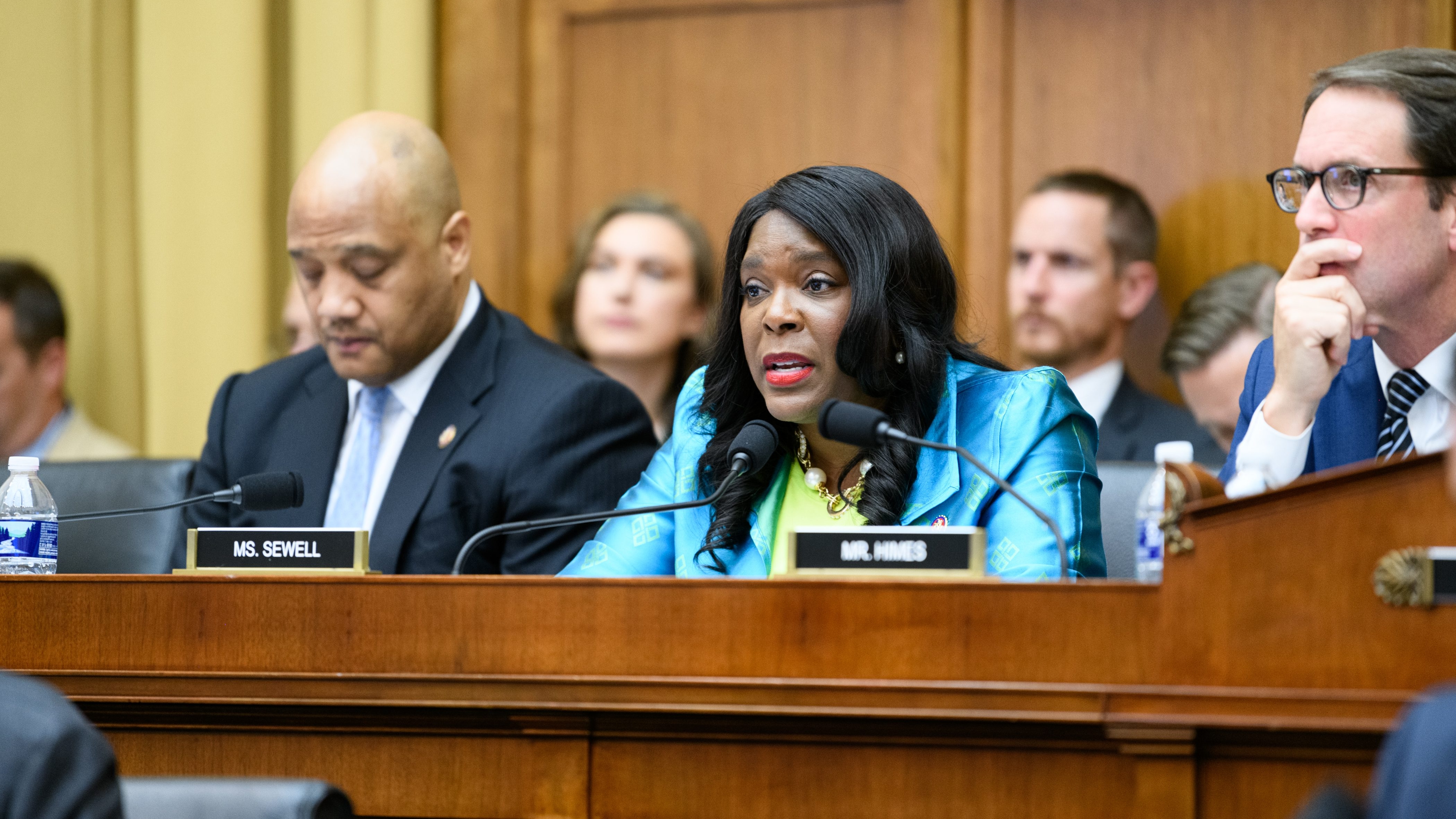The U.S. House of Representatives on Thursday passed by a vote of 236-181 the George Floyd Justice In Policing Act. Congresswoman Terri Sewell, D-Alabama, commended the passage and urged her Senate colleagues to pass the bill.
“Tens of thousands of Americans have taken to the streets in the past few weeks demanding racial justice and comprehensive reform within our law enforcement systems,” Sewell said. “Now is not the time to be timid. Shopping, jogging or sleeping while Black should not be a death sentence.”
“There is no doubt in my mind that George, Ahmaud, Breonna and Elijah would still be with us were our policing systems following the letter of the law without racial bias, and were our law enforcement officers held accountable,” Sewell said. “This moment must be different. The Justice In Policing Act will help save lives and, importantly, hold police accountable. In contrast to the Senate bill, this legislation contains meaningful, mandatory accountability measures to end misconduct,”
“I urge the Senate to take up and consider the Justice In Policing Act without delay,” Sewell said.
Southern Poverty Law Center Action Fund President and CEO Margaret Huang issued a statement following the bill’s passage.
“While we are encouraged that the U.S. House of Representatives passed the George Floyd Justice in Policing Act this evening, this bill is only a first first step in reforming law enforcement agencies and addressing accountability,” Huang said. “The bill includes critical changes such as banning chokeholds, no knock warrants and qualified immunity. However, it doesn’t go far enough to dismantle structural racism and transform our policing systems. We need bold steps that respond to the moment and achieve lasting change.”
“The SPLC Action Fund joined more than 450 civil rights organizations to call for reforming our nation’s policing system,” Huang continued. “Among them, are: creating a federal standard that permits the use of force only when necessary; demilitarizing law enforcement agencies; ending ‘policing for profit’ mechanisms; creating a national registry of officers who have engaged in misconduct; and banning racial profiling. Communities across the country are demanding an end to the legacy of police brutality. Congress must continue their work to heed the call to ensure safety, equality, and justice for all.”
Specifically, the George Floyd Justice in Policing Act of 2020 would use federal statute to prohibit law enforcement from racial and religious profiling by federal, state, and local law enforcement; mandate training on racial, religious, and discriminatory profiling for all law enforcement; require law enforcement to collect data on all investigatory activities; ban chokeholds and no-knock warrants; require that deadly force be used only as a last resort; requires officers to employ de-escalation techniques first; changes the standard for evaluating whether law enforcement use of force was justified from whether the force was “reasonable” to whether the force was “necessary.”
The bill would also limit the use of military equipment on American Streets and requires body cameras. All federal uniformed police officers would have to wear body cameras and requires state and local law enforcement to use existing federal funds to ensure the use of police body cameras.
It would also require marked federal police vehicles to have dashboard cameras. H.R. 7120 would make it easier to prosecute offending officers by amending the federal criminal statute to prosecute alleged police misconduct. The bill also enables individuals to recover damages in civil court when law enforcement officers violate their constitutional rights by eliminating qualified immunity for law enforcement.
The bill would grant the Department of Justice Civil Rights Division subpoena power and create a grant program for state attorneys general to develop authority to conduct independent investigations into problematic police departments. This bill reinvests in our communities by supporting community-based programs to change the culture of law enforcement and empower communities to reimagine public safety.
The bill would require the creation of law enforcement accreditation standard recommendations based on President Barack Obama’s Taskforce on 21st Century Policing. It creates law enforcement development and training programs to develop best practices. The bill studies the impact of laws or rules that allow a law enforcement officer to delay answers to questions posed by investigators of law enforcement misconduct. It enhances funding for pattern and practice discrimination investigations and programs managed by the DOJ Community Relations Service.
The bill requires that the Attorney General collect data on investigatory actions and detentions by federal law enforcement agencies; the racial distribution of drug charges; the use of deadly force by and against law enforcement officers; as well as traffic and pedestrian stops and detentions. It establishes a DOJ task force to coordinate the investigation, prosecution and enforcement efforts of federal, state and local governments in cases related to law enforcement misconduct.
The bill creates a nationwide police misconduct registry to prevent problematic officers who are fired or leave one agency, from moving to another jurisdiction without any accountability. It mandates state and local law enforcement agencies report use of force data, disaggregated by race, sex, disability, religion, age. It also makes it a crime for a federal law enforcement officer to engage in a sexual act with an individual who is under arrest, in detention, or in custody. It prohibits consent as a defense to prosecution for unlawful conduct and incentivizes states to set the same standards.
Congressman Gary Palmer, R-Hoover, voted against H.R. 7120, saying it makes it harder for law enforcement and would lead to more crime in our communities.
“I opposed this bill because it would result in more crime and fewer people willing to serve in law enforcement.,” Palmer said. “The Democrat bill lowers the standard for mens rea and virtually eliminates qualified immunity for officers, meaning that an officer could potentially go to prison for breaking the law unintentionally. Few people want to serve in a job in which they are attacked, underpaid, and overworked, and even fewer want to serve in one in which they could be charged as a criminal besides. At the end of the day, more crime and fewer law enforcement officers to ensure our safety would be the results of this bill.”
The bill now goes to the U.S. Senate, where Democratic senators blocked a Republican police reform bill by Sen. Tim Scott, R-South Carolina, from coming to the floor for debate, saying it does not go far enough to address issues of systemic racism and police brutality. The move likely means that a compromise bill is now impossible and there will be no significant policing reform legislation passed in this Congress.
Sewell is in her fifth term representing Alabama’s 7th Congressional District.




















































